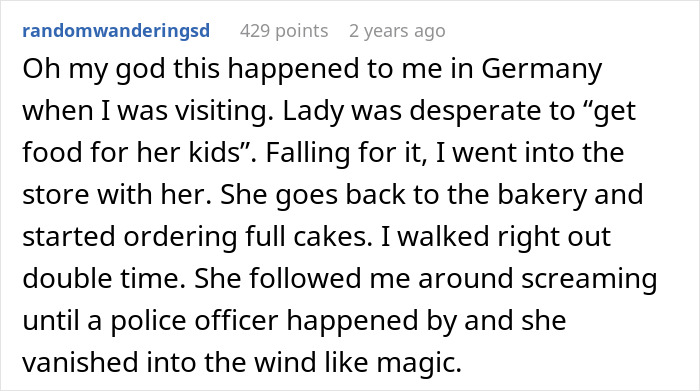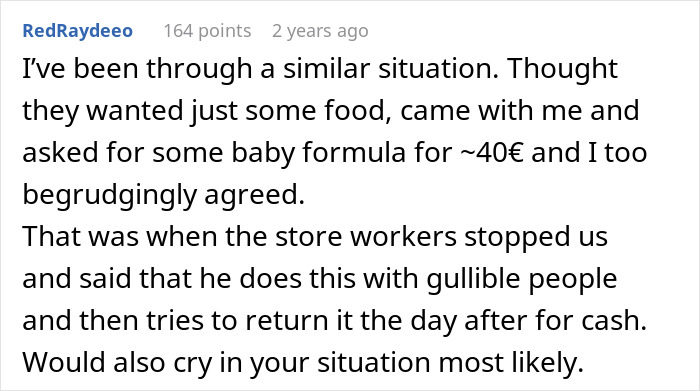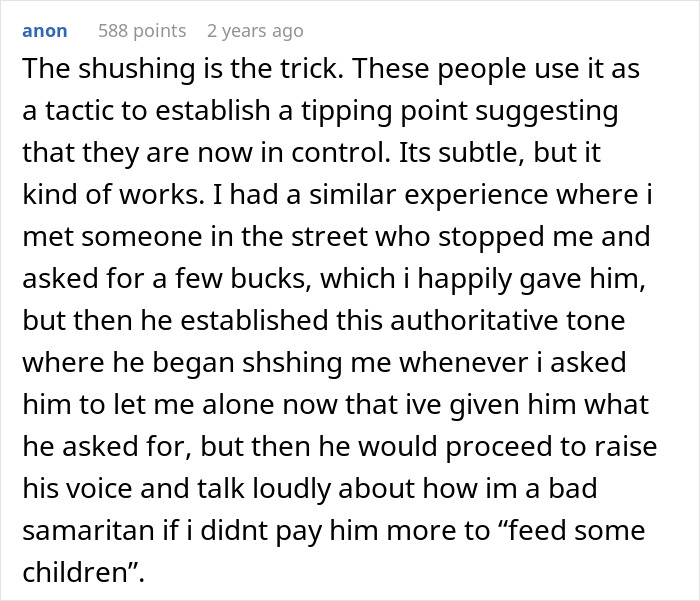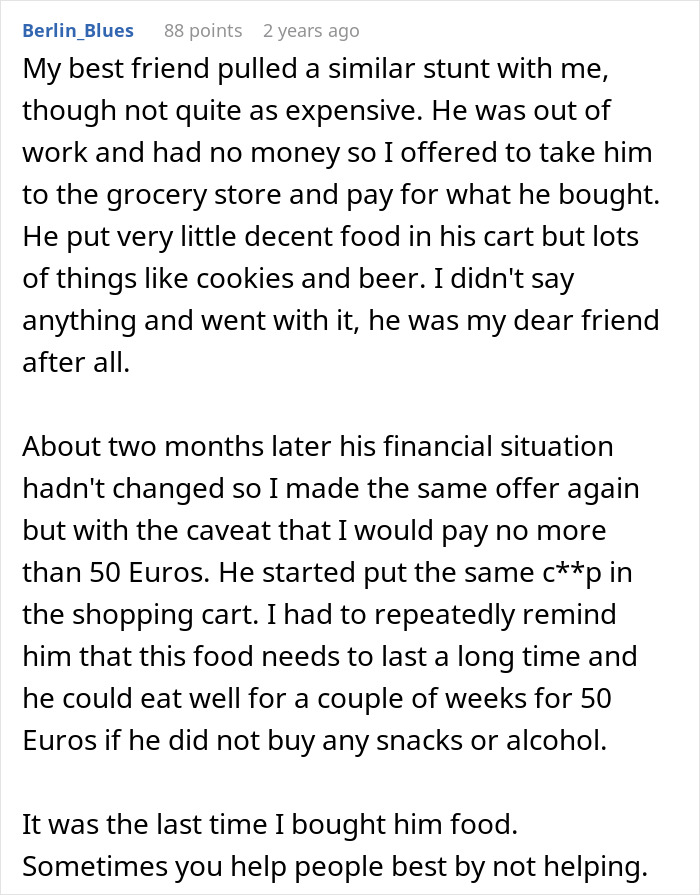Imagine you’re waiting in line at the grocery store, your cart full and your mind on dinner plans, when you notice the person ahead of you fumble with a credit card reader. Instinctively, you feel that tug of compassion: “I’ve been there before, let me help.” What you may not realize is how meticulously some scammers orchestrate this moment.
A woman shared her horrible encounter with a grocery store shopper who tried to trick her into buying food for her “starving children.” We reached out to the woman who made the post via private message and will update the article when she gets back to us.
Most folks would probably help a mother who needed food for her kids

Image credits: drazenphoto/Envato (not the actual photo)
A well-meaning woman regretted agreeing to help
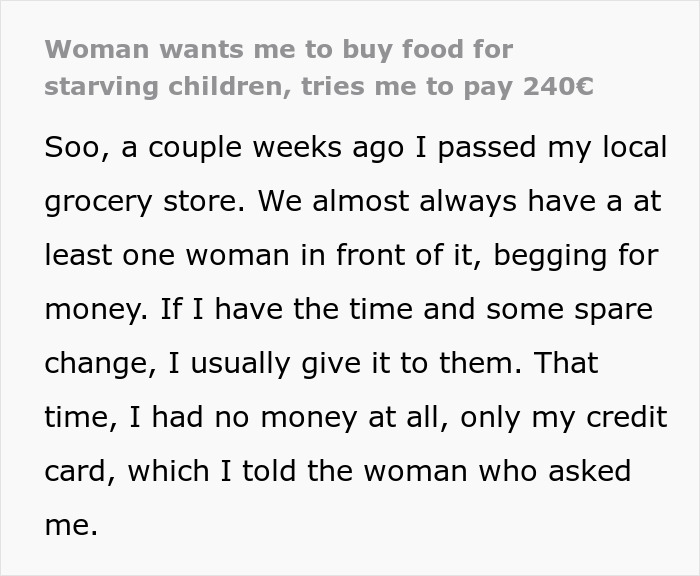


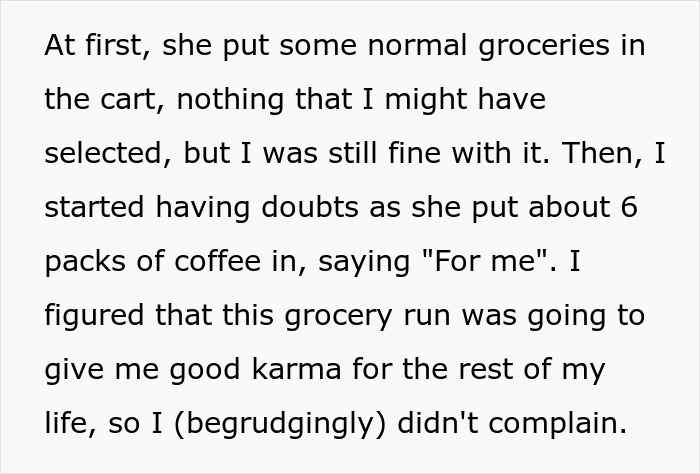
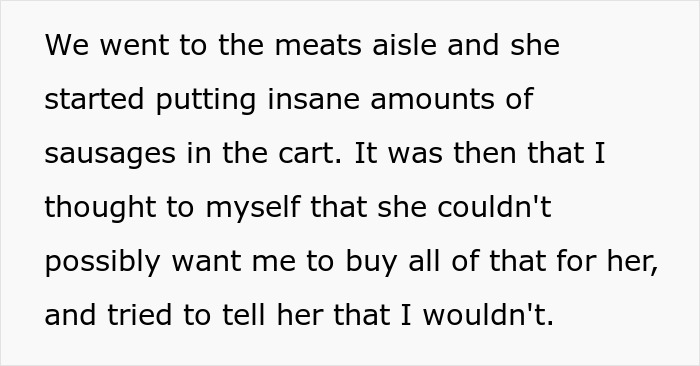
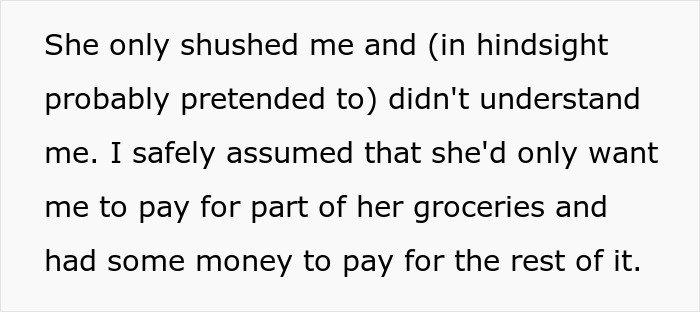
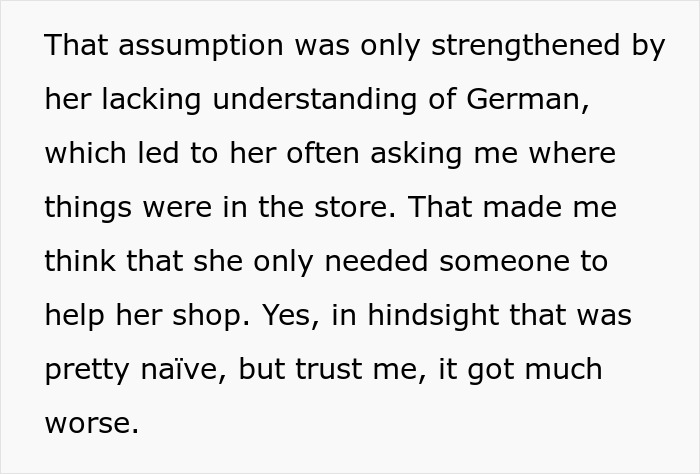


Image credits: GSR-PhotoStudio/Envato (not the actual photo)

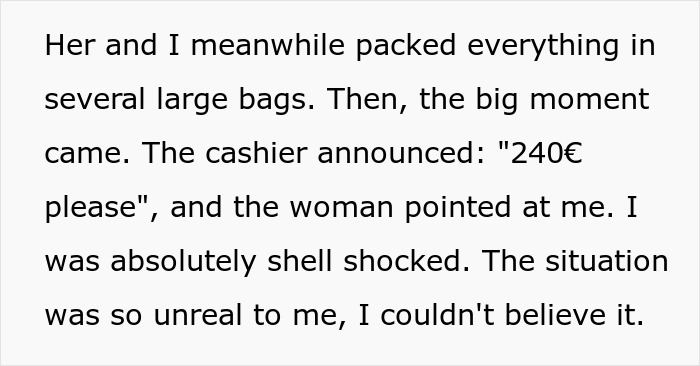
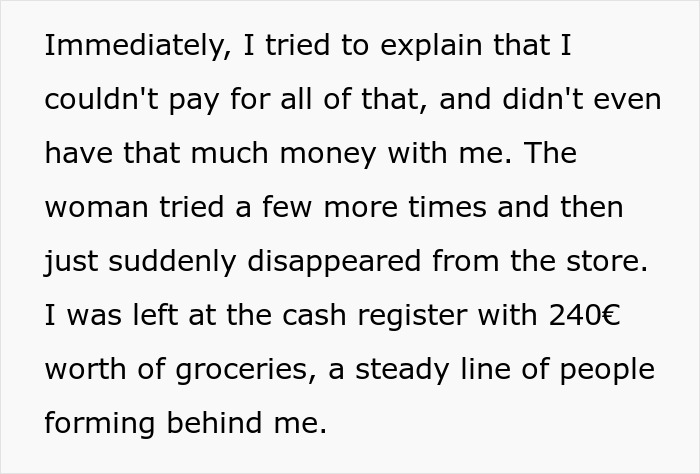


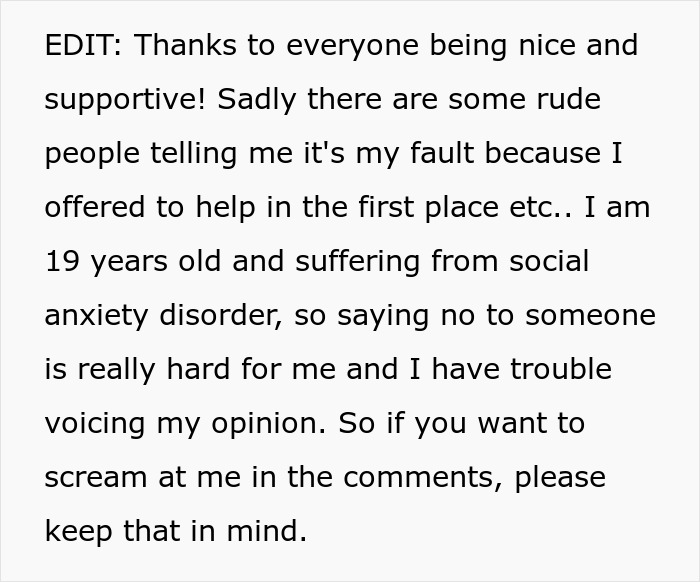
Image credits: linoriel
Scammers exploit human psychology to get things
The sad fact is that a lot of these “scams” (not to be confused with just a person taking advantage) are based on exploiting some folks’ genuine desire to help out. After all, asking for help can be seen as embarrassing in a lot of culture. Their embarrassment is genuine-seeming: a shaky voice, an apologetic laugh, even a furtive glance toward the store exit in case they need a quick getaway. These performers understand emotional contagion: when they display anxiety, we feel it too, and our empathy compels us to act.

Image credits: Karina Karina/Unsplash (not the actual photo)
Scammers also exploit our aversion to conflict and our desire to maintain social harmony. In a crowded aisle, nobody wants to draw attention by demanding proof or loudly questioning a stranger’s story. The scammer counts on this social discomfort. They know that questioning someone’s authenticity could shame them, and bystanders won’t step in to help you call them out. You’re left juggling your own groceries, their distressed persona, and the unspoken pressure to resolve the situation quietly.
Time pressure plays a crucial role. A scammer will appear hurried, perhaps muttering about being late for an appointment or needing to catch a bus. Their implied urgency triggers our decision-making shortcuts: we see someone in a pinch and assume the fastest solution is the best. Stopping to verify details feels unkind or impractical when the “victim” posture is so convincing. In a split second, you’ll sacrifice caution for the promise of restoring calm.
Despite appearing “dumb” and simple, some scams are quite sophisticated
They layer in another psychological weapon: social proof. If other shoppers glance sympathetically, nod, or even offer spare change, you interpret that as validation. “If everyone else believes this person, I probably should too.” The more people who appear to go along with it, even passively, the more legitimate the scam seems. And once a few people step forward, the rest of us find it even harder to refuse.
Finally, the scammer capitalizes on the aftermath. As soon as your card is swiped or you hand over cash, they gather their groceries with a rapid efficiency that belies their earlier panic. They melt into the crowd before the cashier can confirm the payment or anyone notices the discrepancy. By the time you realize you’ve been duped, the window for reversal has often closed, and the trail goes cold.

Image credits: Getty Images/Unsplash (not the actual photo)
Protecting yourself starts with awareness. Recognize the red flags: an overly dramatic display of distress, vague explanations, a crowd of silent sympathizers, and palpable urgency. You can still help, kindly, calmly, but on your terms. Offer to let them step aside and call their bank, or ask the cashier to help resolve the card issue so you’re not the one footing the bill. A simple, “Let me get the manager to sort this out for you,” grants you a few extra seconds and signals that you won’t be rushed.
Generosity is one of humanity’s greatest strengths, but when kindness is weaponized, it can cost you. By understanding the psychological tricks at play, emotional contagion, social proof, time pressure, and conflict avoidance, you can honor your instinct to help without falling victim to a cynical con. In the end, the best way to protect both your wallet and your goodwill is to pause, ask a question, and then choose compassion with your eyes wide open.
Some folks shared their thoughts
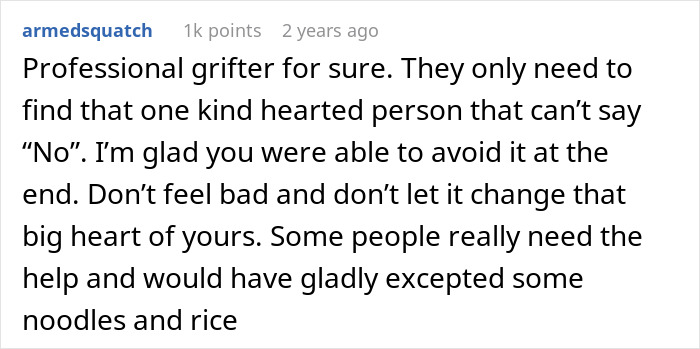



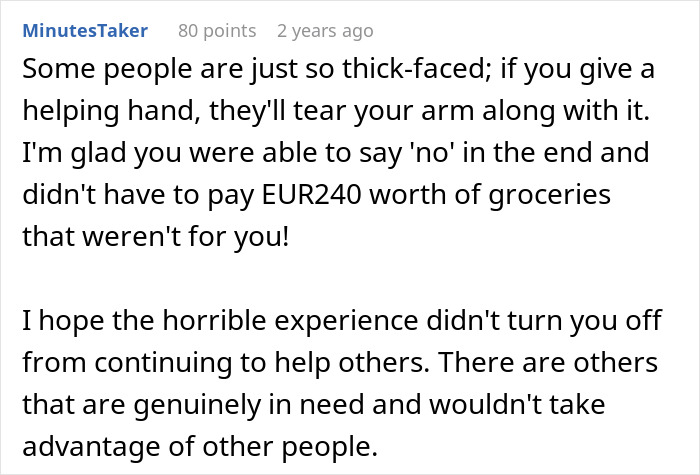
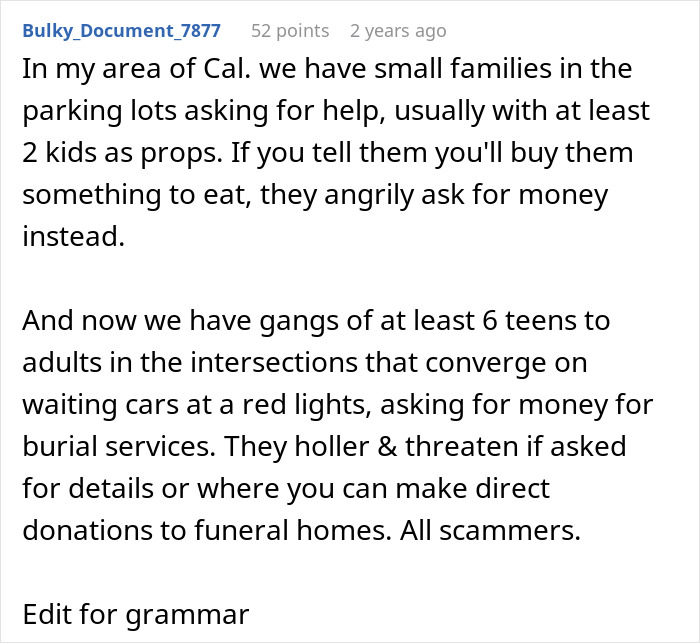



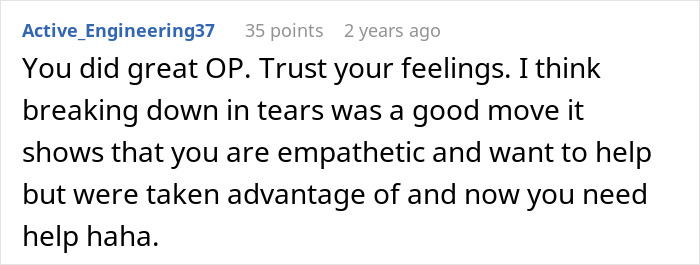


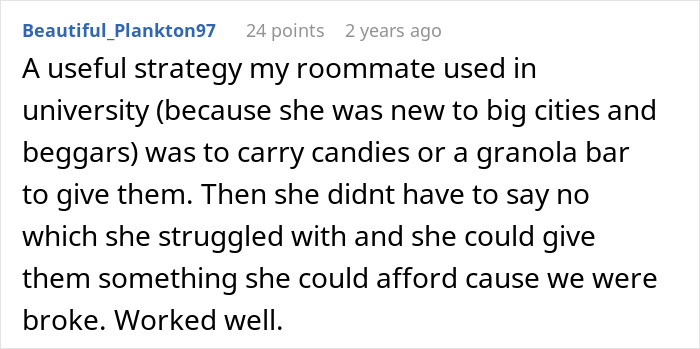

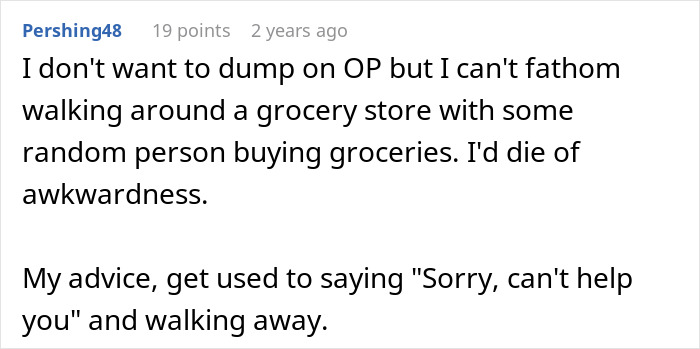
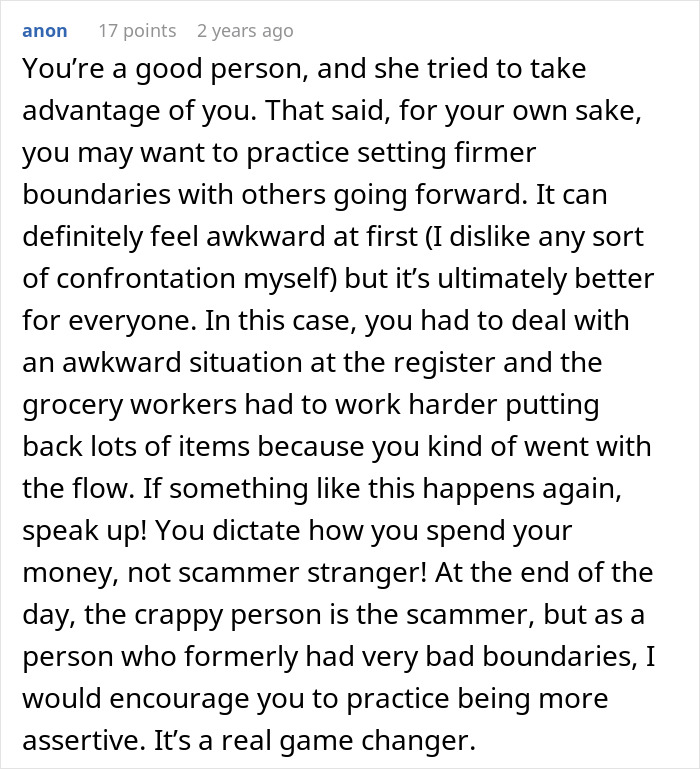

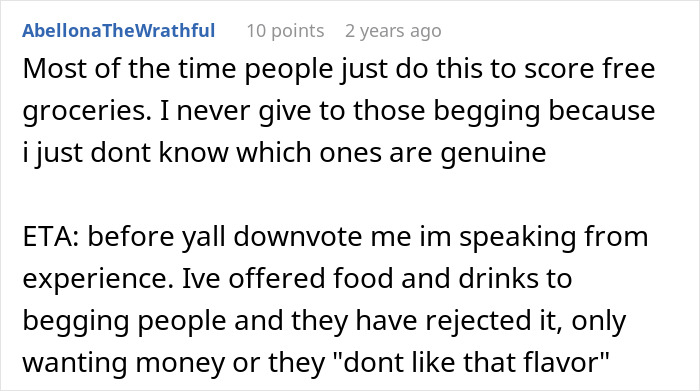
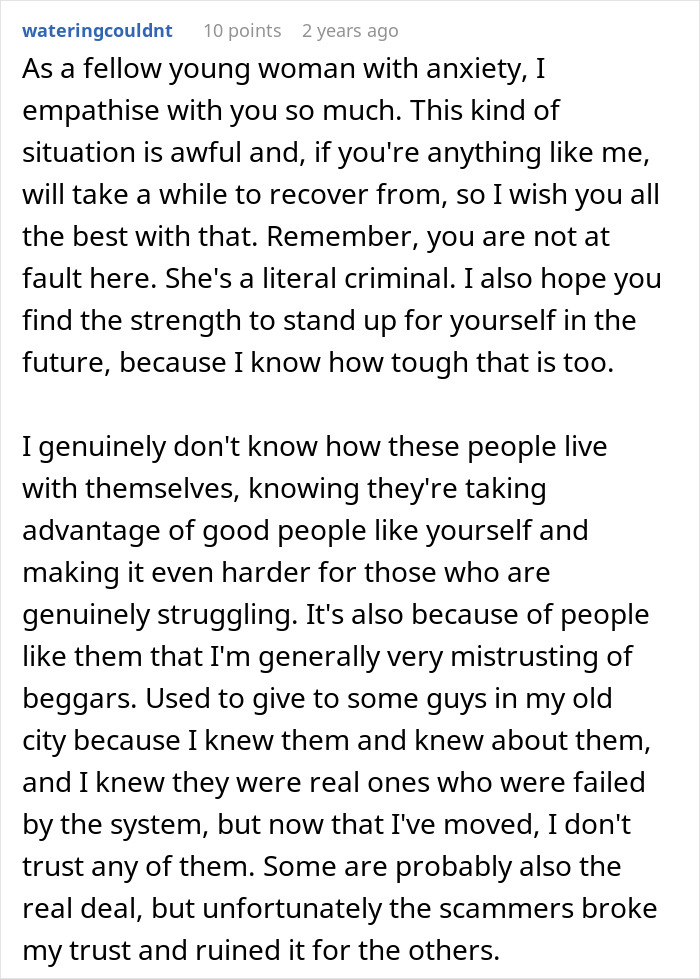
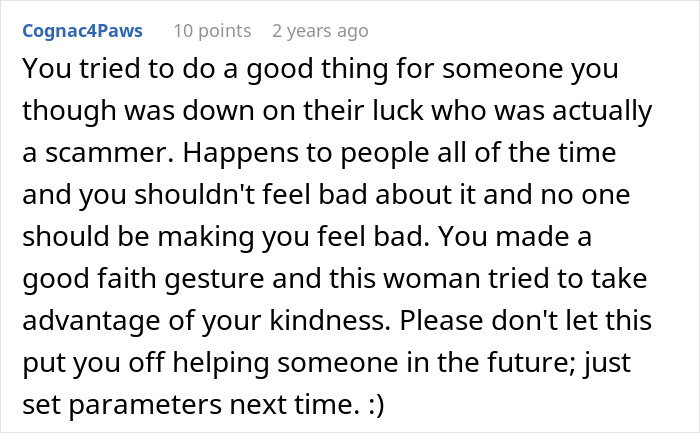


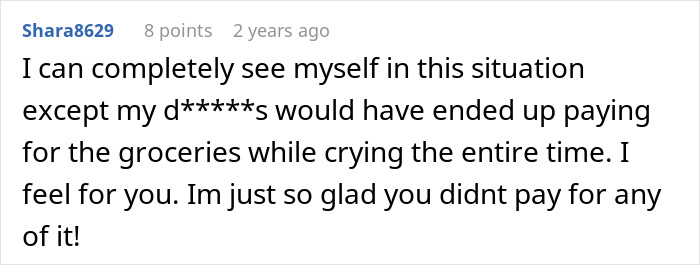



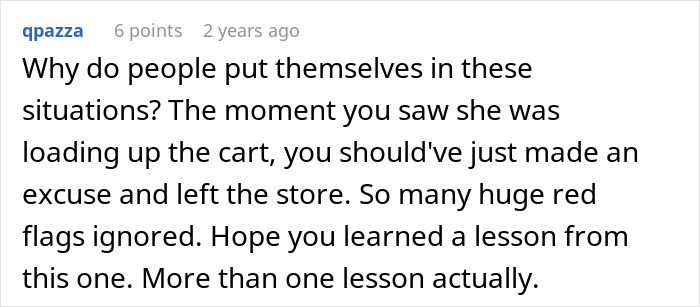
Others described similar experiences
